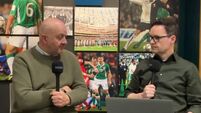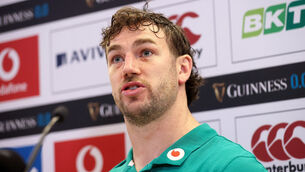Union’s finances face tough 12 months
But after a momentous year in which the organisation posted profits of €5.2m, the healthy situation could change for the worse in the next 12 months.
The absence of autumn internationals in this World Cup year will impact unfavourably on the finances, warned outgoing treasurer John Lyons. But Mr Lyons said he was well pleased at the results posted for the year up to April 30.















